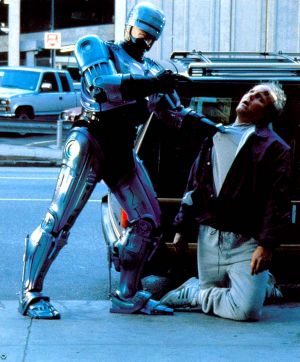Androids and Robots Are Back

Robots have always been big in science fiction. And androids, the human appearing 'bots are even more popular. Android typically refers to the male form, and the term Gynoid refers to the feminine form. But surprisingly, there have been big gaps in sci-fi history, where androids and robots don't show up, even though they're loved universally.

Surprisingly, the word android predates the word robot by almost two centuries. It first appeared as Androides in the Oxford English Dictionary by 1738, referring to an automaton. Its etymology is derived from the Greek word "andros" meaning man. The French writer, Villiers, used the word, android, in L'Eve future, a novel published in 1886, which popularized the word.
The word robot was first used in a play by the Czech playwright, Karel Capek in 1921 and the sci-fi floodgates were opened. But nothing happened for twenty-nine years until Isaac Asimov captured the public's imagination with his landmark book I, Robot in 1950. The book grew out of nine stories Asimov originally wrote forSuper Science Stories and Astounding Science Fiction magazines in the 1940's. He coined the term robotics, a word referring to robot technology. So the tide was in with book after robot book that Asimov wrote.

But the 'bot tide ebbed and flowed with names like: Gort, Robbie, HAL, Cylons, R2-D2, and Data, hitting high water marks. Lesser credits going to Westworld, Star Trek, and .RoboCop. For the last dozen years or so, the tide has been low.
But witness the renewed interest in robots, with the recent appearance of Robopocalypse, writtten by Daniel H. Wilson, himself a modern day roboticist. A story of robots, already in our system, in the form of home and business controls, credit 'bots and the like deciding to make war on humankind. Director Steven Spielberg is considering directing it.
What if we took a fresh, new look at the potential here, created a race of androids and gynoids, and integrated them into society to live and work? What if they lifted present society, primarily by example, but we gave them enough political clout to end political gridlock and government shutdowns. For that matter, they could rescue humanity from the threats of environmental disaster and the menace of financial meltdown. What if this new, saving demographic does wonders in rescuing mankind from one disaster after another, and brought back the joy of living in a reasonably peaceful world, where resources were available so everyone could prosper? Of course this new race would have to hold down jobs, save money, buy quality products, and see dentists and physicians to keep the economy sound.

Nice concept. But where would human ability and that spark of creativity end up, without the ability to fail or make bad choices? Even worse, what if the race of androids came to a crossroads and went bad? Well, humanity would have to make a quick recovery and maybe just have the solve the problems they were avoiding in the first place. Stanley Gerson
Stanley Gerson is out of the starting gate with iSly, an android story that packs a wallop, when the 'droids go bad. It's set in the grandeur of San Francisco North,
No comments:
Post a Comment